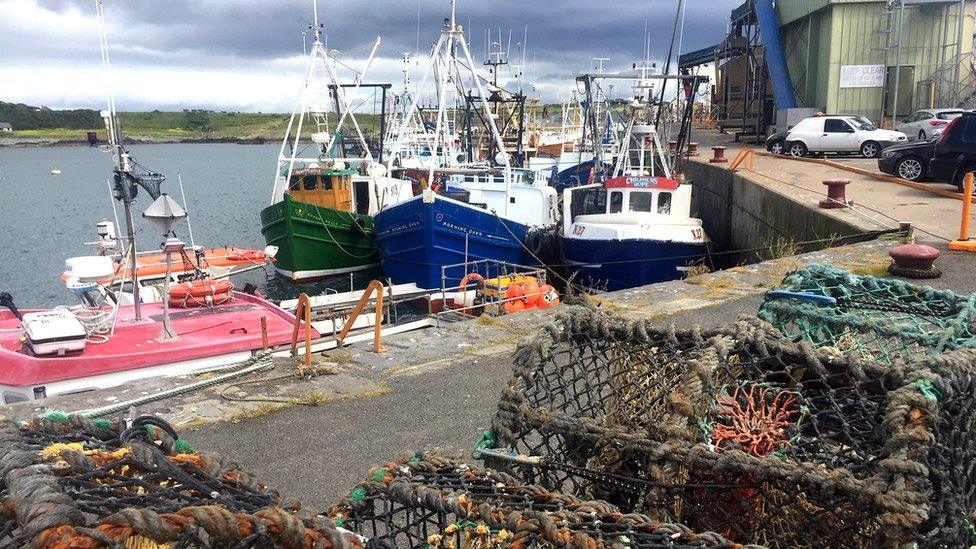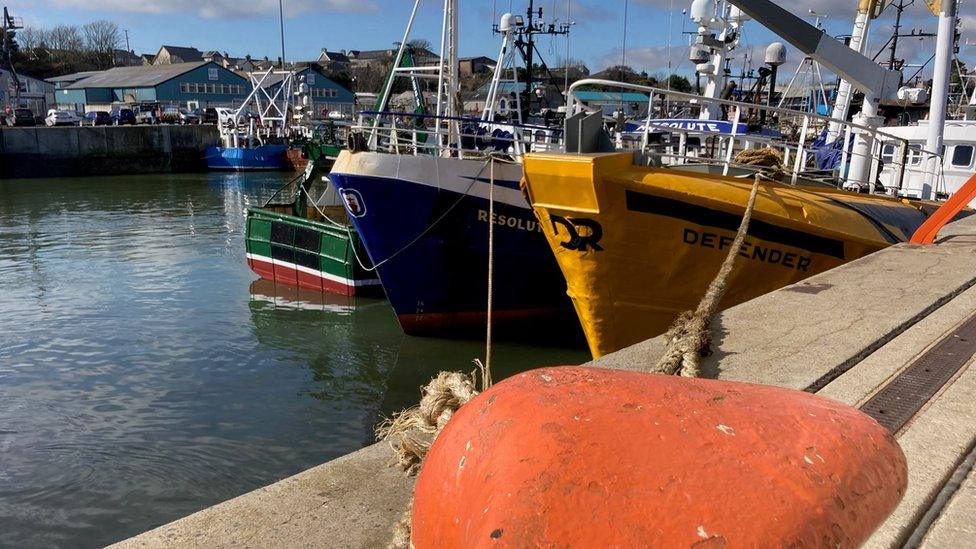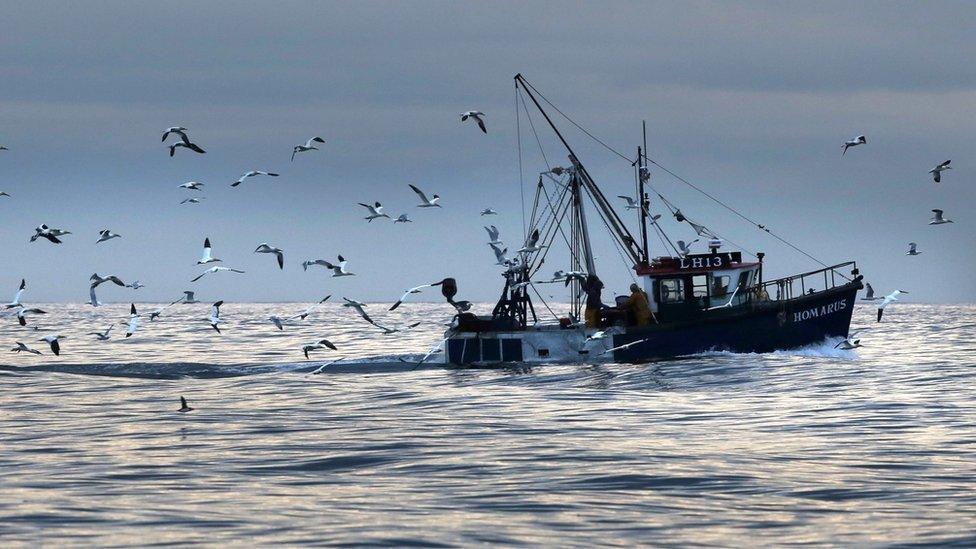Brexit: NI Protocol 'positive for NI's seafood sector'
- Published

The report says the NI Protocol gives 'NI exporters a comparative advantage over their GB competitors'
The NI Protocol creates a "positive situation" for NI's seafood sector, a report published by Stormont's Agriculture Minister Edwin Poots says.
NI fish producers remain part of the EU's single market so can continue to export their goods to the EU with minimal paperwork and checks.
Producers in other parts of the UK face significant barriers to EU trade.
The report says this gives "NI exporters a comparative advantage over their GB competitors".
The study, produced by the Fishing and Seafood Development Programme, external, acknowledges trade from GB into NI faces difficulties due to the protocol.
But it says that NI exporters can benefit.
"With more paperwork required for GB products to show compliance with EU standards there are non-tariff barriers to trade," it states.
"This is a positive situation for the export-dependent NI seafood sector, without the admin burden or the delays faced by GB exporters that impacts freshness and so price."
It describes the expected long-term situation as "either comparatively beneficial for NI seafood exporters" or if the protocol should be revoked "on a par with other parts of the UK".

Edwin Poots' campaign literature promises to "systematically undermine and strip away all aspects" of the NI Protocol
Mr Poots is usually a firm opponent of the protocol.
In his campaign literature for the DUP leadership, he promises to "systematically undermine and strip away all aspects' of the protocol".
The fisheries report also makes a series of recommendations such as the development of Kilkeel, in County Down, as a potential Irish Sea hub for the fishing and maritime economy by increasing port capacity and shore side facilities.
Mr Poots said the report "highlights the considerable investment that is required to help the industry adapt to the challenges it faces and grasp the opportunities presented following the United Kingdom's exit from the European Union".
- Published2 February 2024

- Published19 March 2021

- Published25 March 2021
